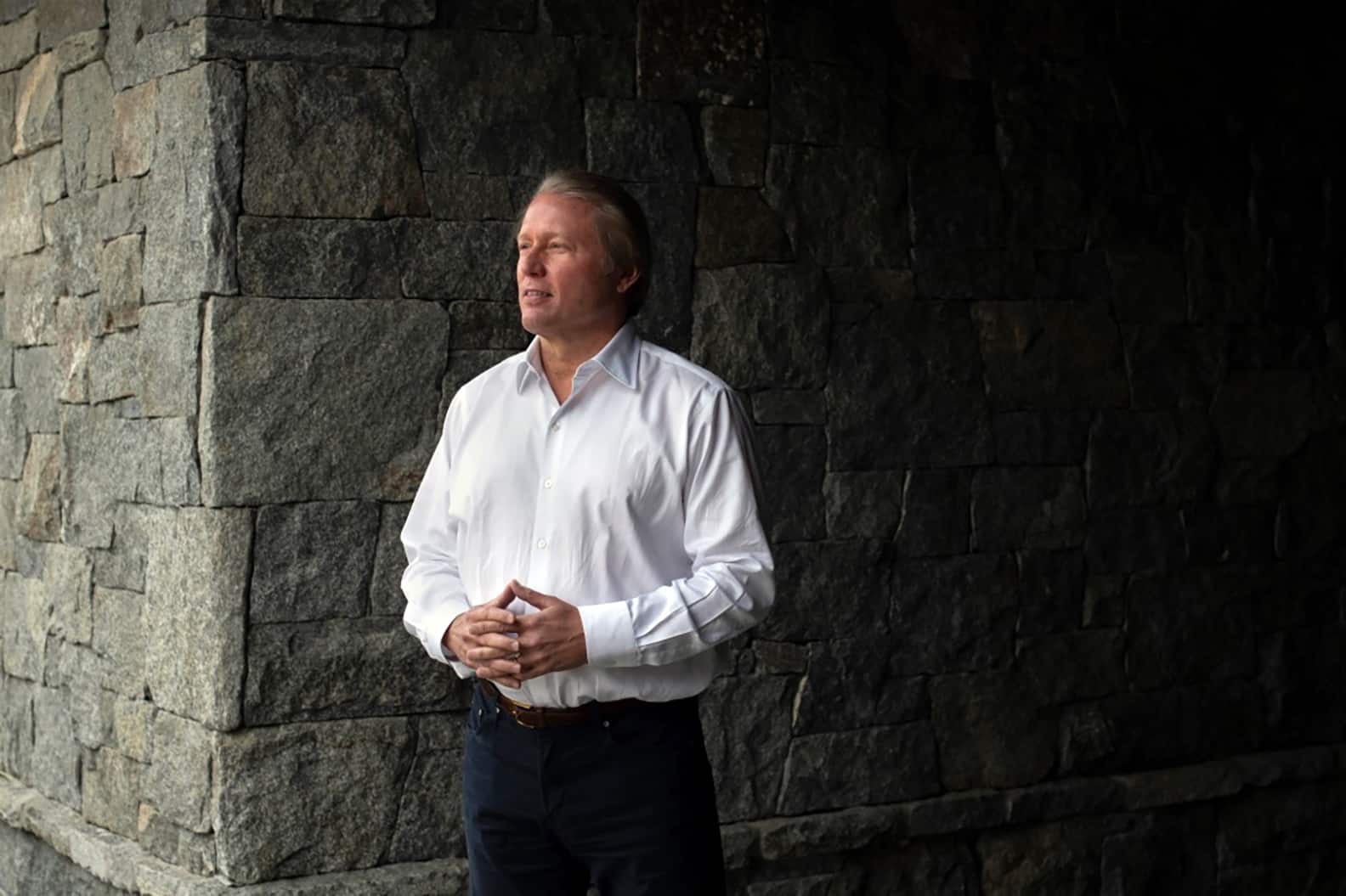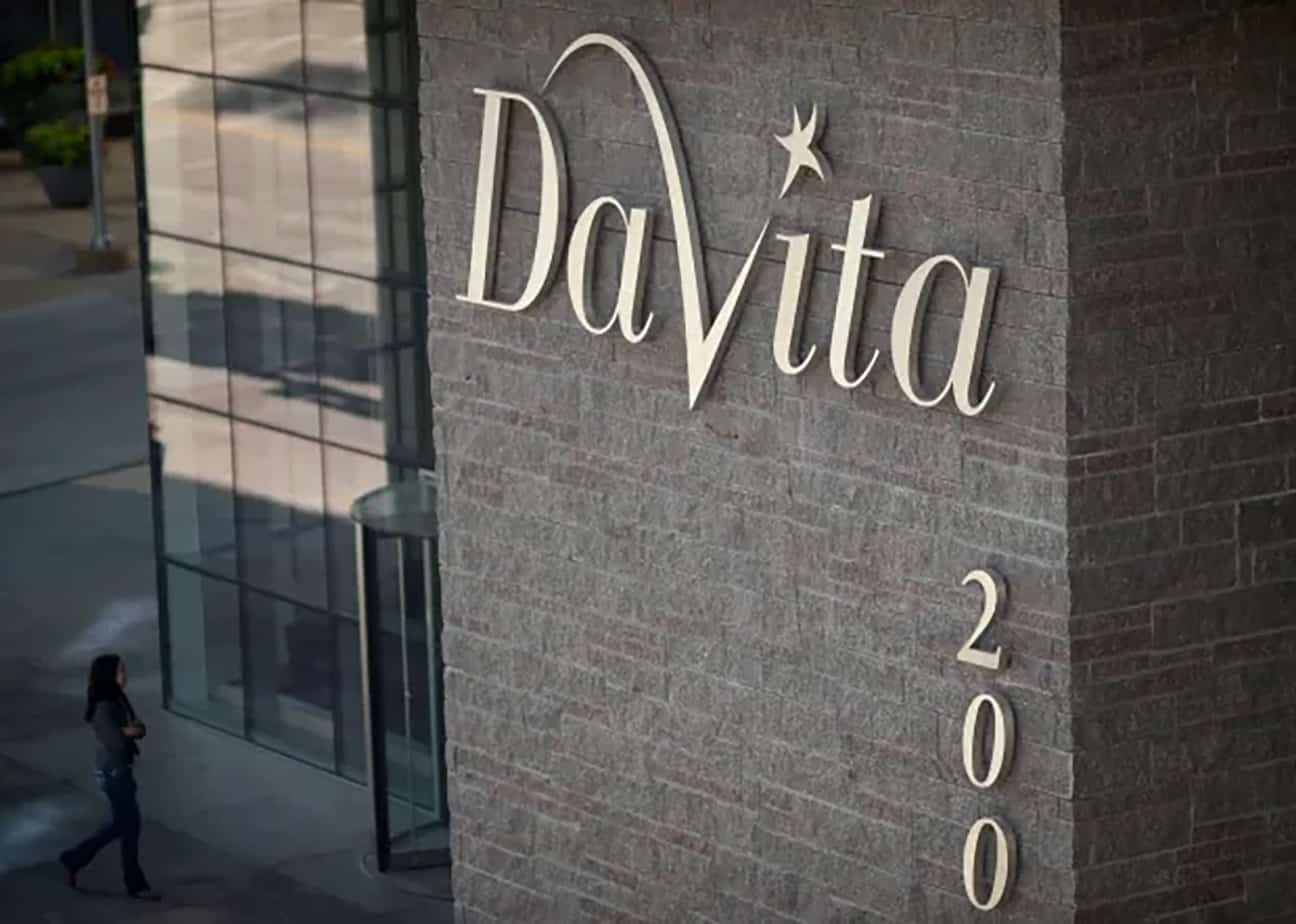Kent Thiry and DaVita were acquitted late Friday afternoon of all six federal charges against them, a precedent-setting victory for two of Denver’s most powerful businesses and businessmen, and a major setback for federal prosecutors who sought to expand the nation’s anti-monopoly laws.
A jury of 12 Coloradans found DaVita and Thiry not guilty on three counts each of conspiracy in restraint of trade to allocate employees. Prosecutors alleged that Thiry, when he was DaVita’s CEO, made agreements with the CEOs of three other health care companies to not recruit each other’s employees and that those agreements were illegal constraints on competition.
“We appreciate the jury’s decision and are grateful to put this matter behind us,” DaVita said in a statement. “We remain committed to operating with integrity and upholding the highest standards of law.”
Megan Lewis, lead prosecutor with the U.S. Department of Justice, declined to comment.
Thiry, red-eyed and choking up, spoke to reporters outside Denver’s federal courthouse after the verdict. “I’d like to thank the jury.They were incredibly thoughtful and diligent,” he said.
“I cannot overstate the joy I feel for my family and the people I worked with, for whom this was also an ordeal,” Thiry told reporters.
He added that “the jury did affirm that this case should not have been brought.” When asked if he agrees with his attorney, Juanita Brooks, that his indictment was the result of “a witch hunt” by the U.S. Department of Justice, Thiry said, “No comment.”
The case marked the first time in U.S. history that defendants were charged with crimes for creating so-called non-solicitation or non-poaching agreements. Jurors disagreed with prosecutors that the agreements violated the Sherman Antitrust Act of 1890, which prohibits collusion between corporations that curtails competition.
Defense attorneys largely conceded throughout the trial that agreements existed between DaVita and the other companies — Surgical Care Affiliates, Hazel Health and Radiology Partners — but argued they did not intentionally restrain competition for employees. The defense called only one witness in the trial: an economist who testified that economic data proved the agreements did not curb competition.
Prosecutors, meanwhile, presented more than five days of testimony from nine witnesses, along with hundreds of emails and text messages. They claimed the evidence and testimony proved the existence of the agreements and their consequences on competition for employees.
Jurors spent two full days deliberating before delivering their verdict.
The Federal Bureau of Investigation spent three years investigating DaVita, which Thiry led for two decades before stepping down in 2019. The FBI conducted about 120 interviews and amassed mounds of written communications between Thiry and CEOs of the other three companies. Two of the CEOs — Andrew Hayek of Surgical Care Affiliates and Richard Whitney of Radiology Partners — testified at the trial in exchange for assurances by the government that they would not be prosecuted. Thiry did not testify in his own defense.

Kent Thiry, former CEO of the dialysis giant DaVita, faced up to 30 years in federal prison if convicted on all three counts of conspiracy in restraint of trade to allocate employees. (Rachel Woolf/Kaiser Health News)
Surgical Care Affiliates was indicted last year for allegedly entering into two non-solicitation agreements, including the one with DaVita. A trial is scheduled to begin in January 2023.
Thiry took over DaVita, then known as Total Renal Care, in 1999 and moved its headquarters to Denver in 2009. He became synonymous with the company he led and became the city’s highest-paid CEO as DaVita grew into one of the country’s largest kidney dialysis providers.
But the company ran into legal trouble several times during Thiry’s tenure.
In 2014, DaVita agreed to pay $350 million to resolve claims that it sent kickbacks to doctors who referred patients to DaVita clinics. In 2015, it paid $450 million to resolve allegations it prescribed unnecessary drugs to patients and double-billed Medicare for those drugs. In 2018, jurors ordered it to pay $384 million to the families of three patients who died at DaVita clinics.
The government was represented in this week’s trial by U.S. Department of Justice prosecutors Lewis, Sara Clingan, William Vigen and Anthony Mariano.
DaVita was represented by a team of lawyers led by John Dodds of Morgan Lewis & Bockius and John Walsh of WilmerHale. Thiry’s defense was led by Tom Melsheimer of Winston & Strawn and Juanita Brooks of Fish & Richardson.
Kent Thiry and DaVita were acquitted late Friday afternoon of all six federal charges against them, a precedent-setting victory for two of Denver’s most powerful businesses and businessmen, and a major setback for federal prosecutors who sought to expand the nation’s anti-monopoly laws.
A jury of 12 Coloradans found DaVita and Thiry not guilty on three counts each of conspiracy in restraint of trade to allocate employees. Prosecutors alleged that Thiry, when he was DaVita’s CEO, made agreements with the CEOs of three other health care companies to not recruit each other’s employees and that those agreements were illegal constraints on competition.
“We appreciate the jury’s decision and are grateful to put this matter behind us,” DaVita said in a statement. “We remain committed to operating with integrity and upholding the highest standards of law.”
Megan Lewis, lead prosecutor with the U.S. Department of Justice, declined to comment.
Thiry, red-eyed and choking up, spoke to reporters outside Denver’s federal courthouse after the verdict. “I’d like to thank the jury.They were incredibly thoughtful and diligent,” he said.
“I cannot overstate the joy I feel for my family and the people I worked with, for whom this was also an ordeal,” Thiry told reporters.
He added that “the jury did affirm that this case should not have been brought.” When asked if he agrees with his attorney, Juanita Brooks, that his indictment was the result of “a witch hunt” by the U.S. Department of Justice, Thiry said, “No comment.”
The case marked the first time in U.S. history that defendants were charged with crimes for creating so-called non-solicitation or non-poaching agreements. Jurors disagreed with prosecutors that the agreements violated the Sherman Antitrust Act of 1890, which prohibits collusion between corporations that curtails competition.
Defense attorneys largely conceded throughout the trial that agreements existed between DaVita and the other companies — Surgical Care Affiliates, Hazel Health and Radiology Partners — but argued they did not intentionally restrain competition for employees. The defense called only one witness in the trial: an economist who testified that economic data proved the agreements did not curb competition.
Prosecutors, meanwhile, presented more than five days of testimony from nine witnesses, along with hundreds of emails and text messages. They claimed the evidence and testimony proved the existence of the agreements and their consequences on competition for employees.
Jurors spent two full days deliberating before delivering their verdict.
The Federal Bureau of Investigation spent three years investigating DaVita, which Thiry led for two decades before stepping down in 2019. The FBI conducted about 120 interviews and amassed mounds of written communications between Thiry and CEOs of the other three companies. Two of the CEOs — Andrew Hayek of Surgical Care Affiliates and Richard Whitney of Radiology Partners — testified at the trial in exchange for assurances by the government that they would not be prosecuted. Thiry did not testify in his own defense.

Kent Thiry, former CEO of the dialysis giant DaVita, faced up to 30 years in federal prison if convicted on all three counts of conspiracy in restraint of trade to allocate employees. (Rachel Woolf/Kaiser Health News)
Surgical Care Affiliates was indicted last year for allegedly entering into two non-solicitation agreements, including the one with DaVita. A trial is scheduled to begin in January 2023.
Thiry took over DaVita, then known as Total Renal Care, in 1999 and moved its headquarters to Denver in 2009. He became synonymous with the company he led and became the city’s highest-paid CEO as DaVita grew into one of the country’s largest kidney dialysis providers.
But the company ran into legal trouble several times during Thiry’s tenure.
In 2014, DaVita agreed to pay $350 million to resolve claims that it sent kickbacks to doctors who referred patients to DaVita clinics. In 2015, it paid $450 million to resolve allegations it prescribed unnecessary drugs to patients and double-billed Medicare for those drugs. In 2018, jurors ordered it to pay $384 million to the families of three patients who died at DaVita clinics.
The government was represented in this week’s trial by U.S. Department of Justice prosecutors Lewis, Sara Clingan, William Vigen and Anthony Mariano.
DaVita was represented by a team of lawyers led by John Dodds of Morgan Lewis & Bockius and John Walsh of WilmerHale. Thiry’s defense was led by Tom Melsheimer of Winston & Strawn and Juanita Brooks of Fish & Richardson.

